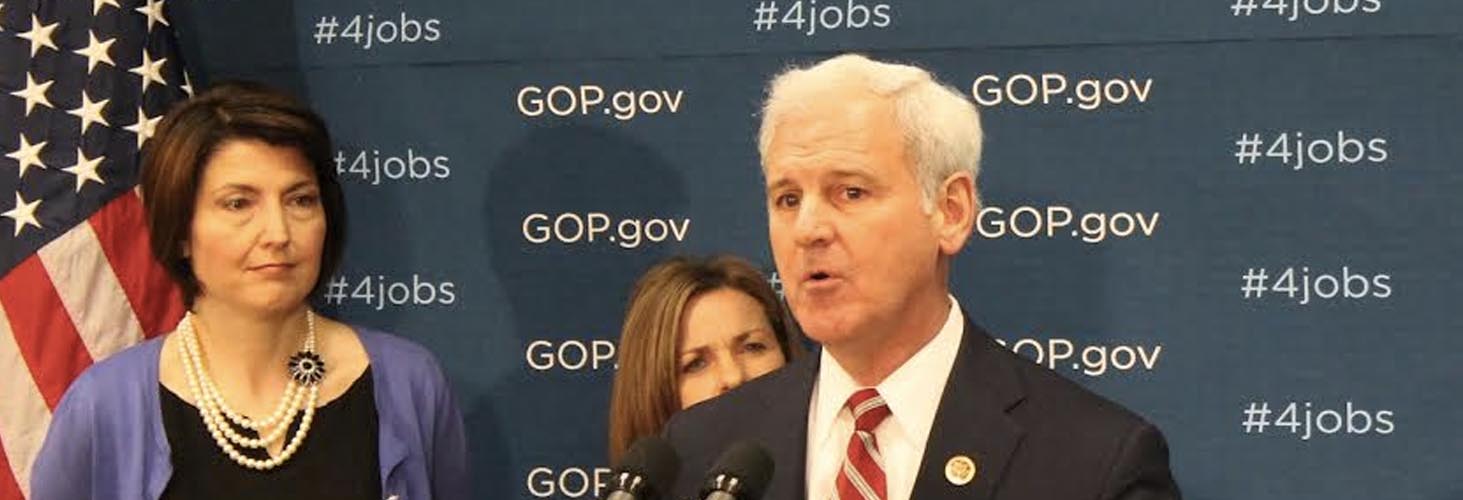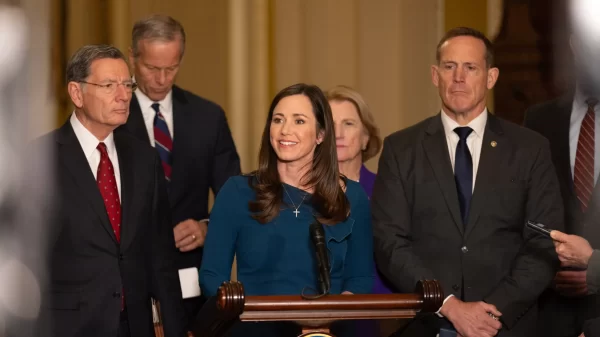By Brandon Moseley
Alabama Political Reporter
Tuesday, Congressman Bradley Byrne, R-Montrose, expressed his concerns about recent actions by China in Africa, specifically actions in the Republic of Djibouti.
Rep. Byrne, a member of the House Armed Services Committee, wrote a letter to Secretary of Defense General James Mattis to express his concerns.
“Last week, the Republic of Djibouti illegally seized control of the Doraleh port terminal by presidential decree,” Rep. Byrne wrote. “According to reports, Djibouti plans to gift the facility to the Chinese government. While Beijing’s aggressive expansion into Africa is not new, I am concerned our military and intelligence assets and ability to operate in this strategic choke point are increasingly under threat due to China’s growing influence with President Guelleh’s government.”
“As you well know, Djibouti is a key location for U.S. power projection and operations,” Byrne continued. “According to the Department of Defense, Camp Lemonnier is the only U.S. permanent base on the entire African continent and is ‘essential to U.S. efforts in East Africa and the Arabian Peninsula.’ The base hosts 4,000 military and intelligence personnel and serves as a key outpost for counterterrorism operations targeting AQIP, al-Shabaab, Boko Haram, the Lord’s Resistance Army and ISIS. Home to Combined Joint Task Force – Horn of Africa, Djibouti hosts Special Forces, UAVs, helicopters, planes and a 150-member rapid response force. Established in the wake of the fatal attack on our mission in Benghazi, this unit is tasked to support and protect U.S. diplomatic personnel working in austere environments across the region.”
“With these sensitive operations based out of Djibouti, I am troubled by President Guelleh’s decision to allow the Chinese to obtain land to build a massive base just miles from Camp Lemonnier,” Congressman Byrne added. “Roughly the size of New Jersey, Djibouti is the only country in the world to host both a U.S. and Chinese naval base. With the completion of Beijing’s first foreign military base, Djibouti is primed to host up to 10,000 troops from China – more than double the U.S. presence. As confirmed by AFRICOM commander General Thomas Waldhauser, this is the closest to a U.S. installation that a rival has been able to build a base, raising significant ‘security concerns.’”
“President Guellah’s willingness to accommodate China is further illustrated in recent reports requesting U.S. forces leave the port town to make way for the Chinese,” Byrne warned. “Many in Congress, the intelligence community, and military have warned of the impact this growing foothold will have in the region. During testimony before the House Armed Services Committee on February 27th, CENTCOM commander General Votel confirmed ‘the new military base and port allow China to project forces more permanently within the region and influence strategically valuable trade waterways.’”
“However, China’s purchase of influence doesn’t stop at the port. Beijing has financed two international airports, a rail line linking Djibouti and Ethiopia, and a new presidential palace for Mr. Guelleh – rumored to be ‘free of charge,'” Byrne said. “Improper bilateral business dealings in the region represent such a challenge, AFRICOM addressed them in its 2017 posture statement: ‘Whether with trade, natural resource exploitation, or weapons sales, we continue to see international competitors engage with African partners in a manner contrary to the international norms of transparency and good governance. These competitors weaken our African partners’ ability to govern and will ultimately hinder Africa’s long-term stability and economic growth, and they will also undermine and diminish U.S. influence.’ It is becoming clear what Chinese influence has bought today. The concern is what will it buy tomorrow.”
“If Djibouti is willing to confiscate a port terminal operating under a legal 30-year agreement, what is to stop President Guelleh from reneging on the twenty-year lease the U.S. signed in 2014 for Camp Lemonnier?” Trump asked. “The growing correlation between the billions spent by Beijing and actions taken by Djibouti harmful to the interests of the U.S. and our allies raises serious questions. In his 2015 Foreign Affairs piece ‘China Comes to Djibouti: Why Washington Should be Worried,’ China scholar Dr. John Lee provides a prescient answer: ‘Money talks, especially in small and underdeveloped states run by authoritarian governments such as Djibouti—and soon Beijing, not Washington, may have the strongest voice.’”
Byrne also questioned General Thomas Waldhauser, commander of U.S. Africa Command, about China’s actions in Africa and how it could impact the United States.
“If the Chinese took over that port, the consequences could be significant if there were some restrictions on our ability to use that, because obviously the supplies that come in not only take care of Camp Lemonnier and other places inside the continent, it is a huge activity there,” General Waldhauser said. “Moreover, our U.S. Navy ships come in and out of there to refuel and whatnot. There could be some consequences, that is why it is important to watch this.”
“The Djiboutian government is probably $1.2 billion in debt to the Chinese. At some point in time that money needs to be collected,” the general said.
The port has been managed by a United Arab Emirates company. The dispute between the Djibouti government and the UAE company is now before a court in London.
Djibouti has a population of 953,000.























































